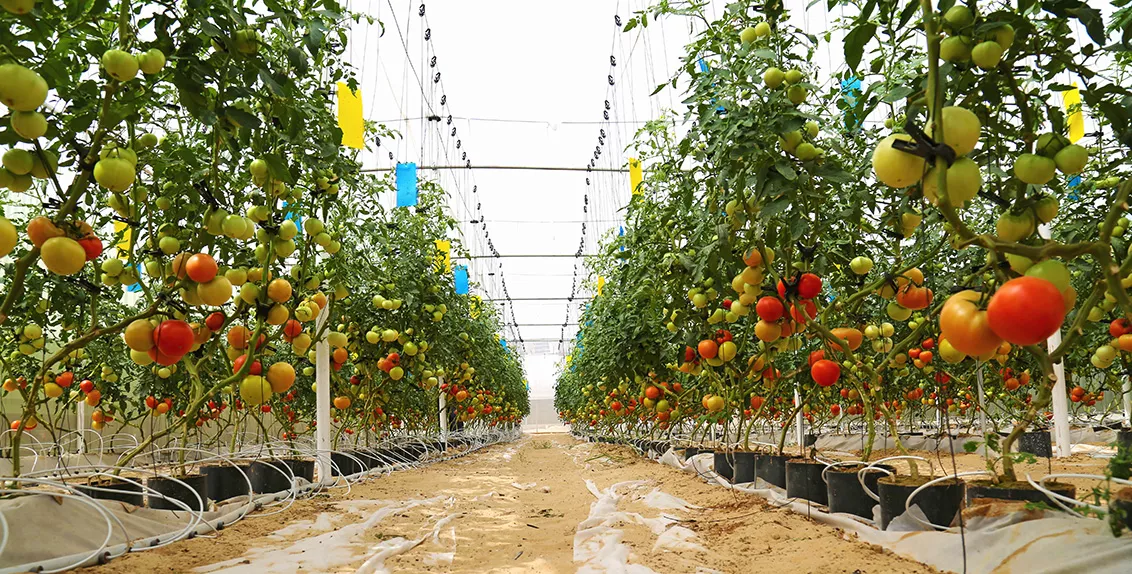ICBA starts testing low-cost crop production system for desert environments
30 April 2022
The International Center for Biosaline Agriculture (ICBA) is testing a new low-cost controlled environment agriculture (CEA) system suited to desert environments like the UAE.
The experiment is part of broader research efforts being conducted by the center to develop soil and water management technologies to boost sustainable crop production under desert conditions.
Some of the primary objectives are to enhance the efficiency of different technologies used in the CEA systems and improve irrigation and nutrient management in open-field systems. Scientists are also studying different salt-tolerant crop varieties that can contribute to food and nutrition security, environmental sustainability, and farming communities’ incomes.
The experiment began with the cultivation of Chal tomato, a South Korean tomato variety, in a customized low-cost greenhouse facility adapted to local conditions.
The facility uses environmentally friendly material instead of plastic or polycarbonate sheets and consumes far less electricity as compared to traditional greenhouses with fan and pad cooling systems.
What is more, the plants are grown without any chemicals and irrigated with a mix of fresh and saline water, thus saving fresh water.
According to Dr. Hicham Fatnassi, a senior horticulture scientist at ICBA: “We are very happy with the preliminary results of this low-cost greenhouse facility at ICBA. As a pilot trial, we installed the facility measuring 250 sq. m. enclosed by agro-shade nets. The plants are placed in plastic cylinders filled with a coconut mixture. This layer of coconut allows plants to develop their roots and grow well before they reach the sandy soil. This allows water to be retained at the root level for a longer period. What we have observed is that almost all the plants are performing well and producing good quality tomatoes. The idea is to find smart farming solutions and develop the ideal design for the low-cost crop production system that is sustainable and suited to marginal environments.”
Water scarcity and high temperatures are the two most important constraints on agricultural production in arid regions like the Middle East and North Africa, and most of the available water is saline. In countries like the UAE, groundwater has been traditionally used for agriculture; however, over the time, withdrawal rates exceed recharge rates, resulting in groundwater becoming increasingly saline. As a result, there is a growing reliance on desalinated water, but its production comes at a cost as it requires a considerable amount of energy. Therefore, there is a need to switch to climate-resilient food and feed crops and adopt innovative cropping systems and sustainable technologies that make the best use of available resources like saline water and sandy soils without placing additional pressure on scarce freshwater resources.
The experiment is part of ICBA’s efforts to test, develop and introduce resource-efficient crops and agri-technologies that help produce more food, save more resources and protect the environment.
It is conducted in collaboration with the South Korean company AgroTech Co. Ltd. Following the design and validation of the system, scientists aim to try more crops and develop policy recommendations for both open-field and CEA systems in marginal environments and enhance the capacity of farmers and laborers to manage these systems.











